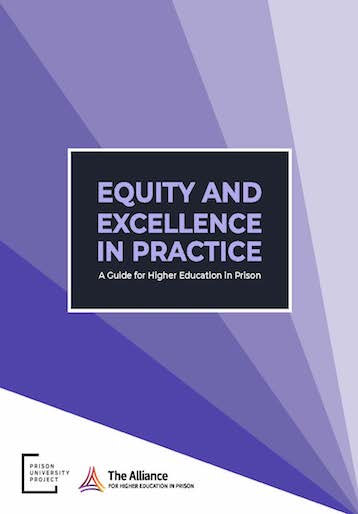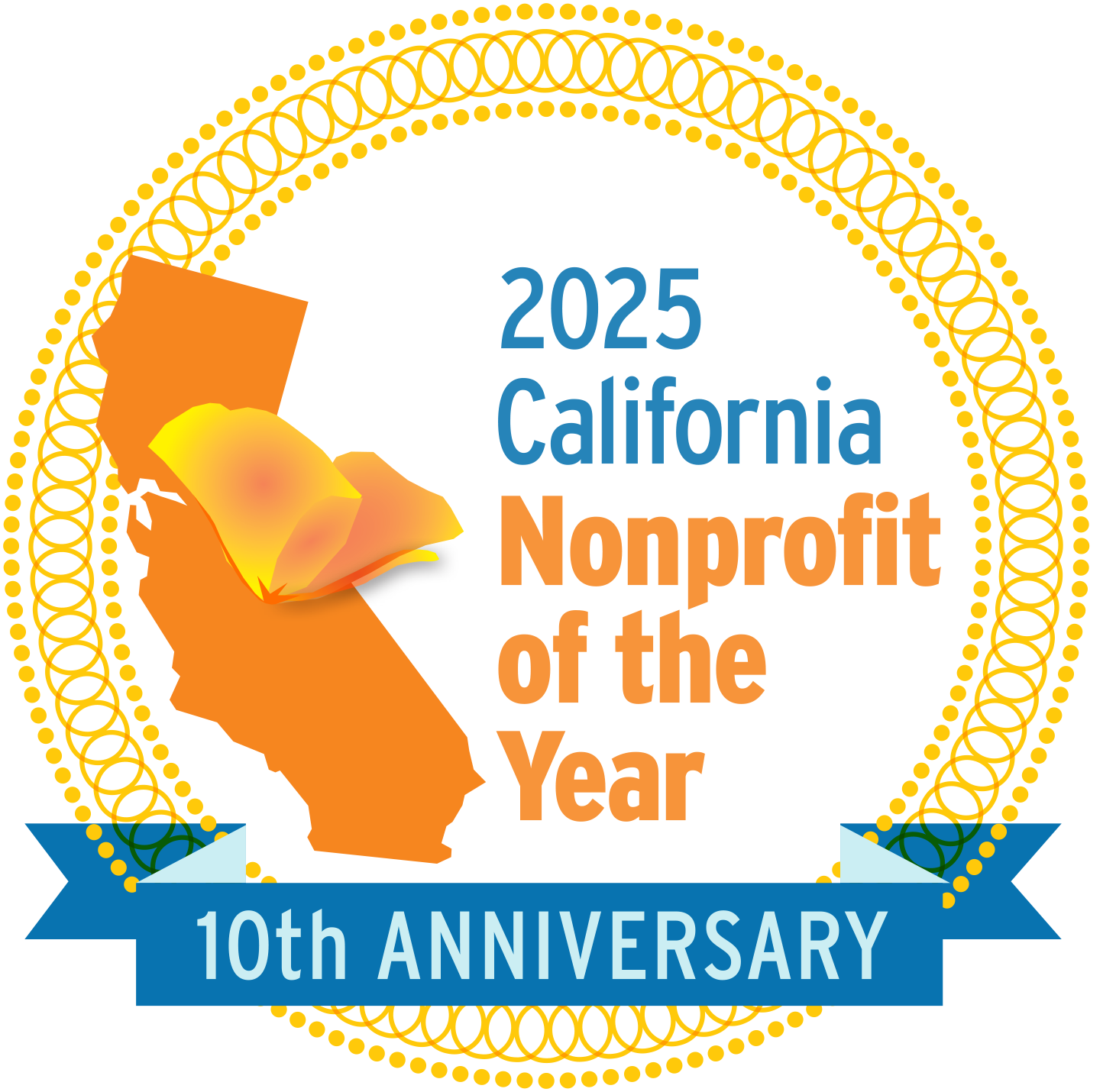 In partnership with the Alliance for Higher Education in Prison, the Prison University Project released the first comprehensive report written by and for practitioners to share recommendations for higher education in prison programs. Equity and Excellence in Practice: A Guide to Higher Education in Prison was co-authored by Prison University Project executive director Jody Lewen, Mary Gould (Alliance for Higher Education in Prison), and Tanya Erzen (Freedom Education Project of Puget Sound), with support from the Lumina Foundation. It offers practical advice for anyone seeking to launch, expand, or improve upon a program offering in-prison higher education. The report also offers guidance for funders, policy makers, researchers and college/university administrators to support quality higher education in prison and sustain the field.
In partnership with the Alliance for Higher Education in Prison, the Prison University Project released the first comprehensive report written by and for practitioners to share recommendations for higher education in prison programs. Equity and Excellence in Practice: A Guide to Higher Education in Prison was co-authored by Prison University Project executive director Jody Lewen, Mary Gould (Alliance for Higher Education in Prison), and Tanya Erzen (Freedom Education Project of Puget Sound), with support from the Lumina Foundation. It offers practical advice for anyone seeking to launch, expand, or improve upon a program offering in-prison higher education. The report also offers guidance for funders, policy makers, researchers and college/university administrators to support quality higher education in prison and sustain the field.
“The Equity and Excellence in Practice report is rooted in the belief that all people deserve access to high-quality education. With that in mind, the report offers advice for how to overcome some of the most common challenges people face when delivering educational programs in prison. Recommendations pull from in-prison programs that rival high-quality programs on colleges and university campuses across the country,” says Mary Gould, director of the Alliance for Higher Education in Prison and co-author of the report.
The report details the most essential components of a quality in-prison higher education program:
- Program Design: Attributes such as full-time dedicated staff, professional development opportunities and faculty and student advisory boards are essential.
- Partnerships and Collaborations: Written agreements outlining the roles and responsibilities of the academic institution, non-profit organization, corrections department and/or other agencies are critical.
- Faculty Recruitment, Training and Supervision: Ensuring that faculty and instructors are highly qualified, properly trained, and supported through continued professional development is necessary to ensure that instructors are able to respond effectively to challenges.
- Curriculum: A comprehensive curriculum not only determines the course-of-study for students; it also communicates the values of the program and what the program believes students are capable of accomplishing.
- Pedagogy: From recruiting faculty to providing ongoing training and support, program administrators have a significant role to play in ensuring the quality of instruction offered to students.
- Instructional Resources: Students must have access to the tools and resources needed to succeed, including basic school supplies and library and technology services.
- Student Advising and Support Services: Students with access to robust student support systems, such as academic planning and advising and academic reentry support, have a much higher likelihood of success during an academic program and after returning to the community.
The number of programs offering post-secondary education in prison has grown significantly in the past few years, yet, organizations and institutions involved in delivering higher education in prison continue to face numerous challenges related to developing quality programs, as well as funding, policy and public opinion.
Equity and Excellence in Practice: A Guide for Higher Education in Prison is available here.
About the Alliance for Higher Education in Prison
The Alliance for Higher Education in Prison, founded in 2017, is a national network dedicated to the expansion of quality higher education in prison, empowering students in prison and after release, and shaping public discussion about education and incarceration. The Alliance will host the 2019 National Conference on Higher Education in Prison in St. Louis (November 14-17). To learn more, visit: www.higheredinprison.org.
Please note that the Prison University Project became Mount Tamalpais College in September 2020.


